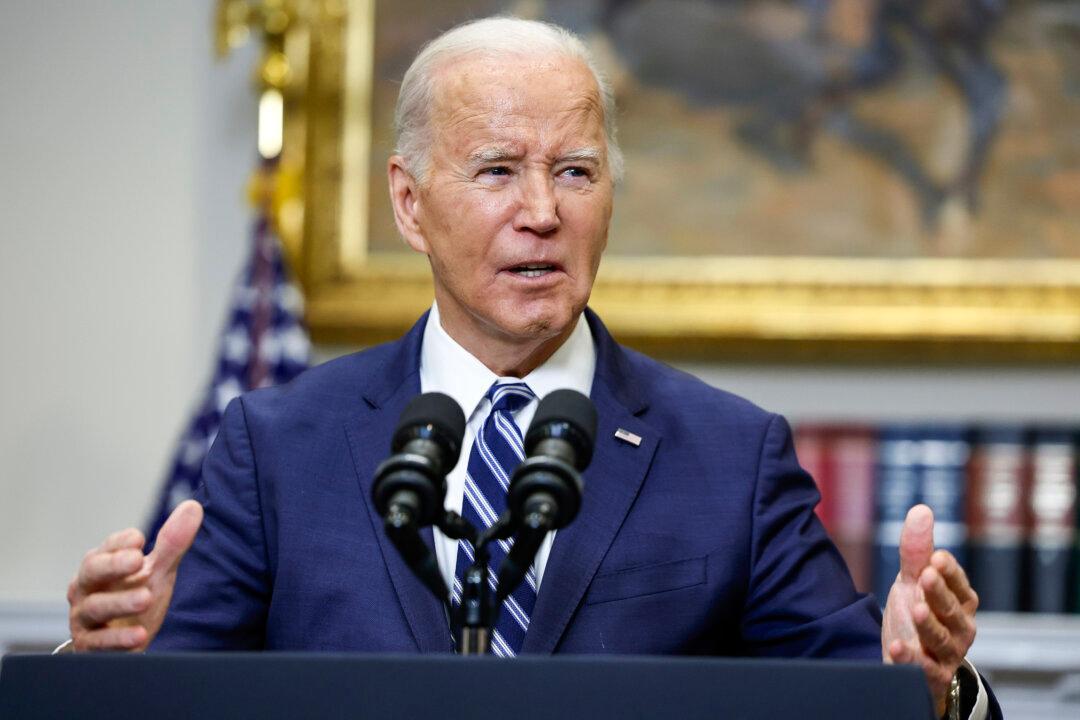The Biden administration is unveiling more than 500 new sanctions against Russia and the entities supporting its human rights abuses and war effort in Ukraine.
The tranche of sanctions is the largest imposed since Russia’s full-scale invasion of Ukraine nearly two years ago and seeks to hold Moscow to account for the war, as well as the death of Russian opposition leader Alexei Navalny, President Joe Biden said in a statement.




